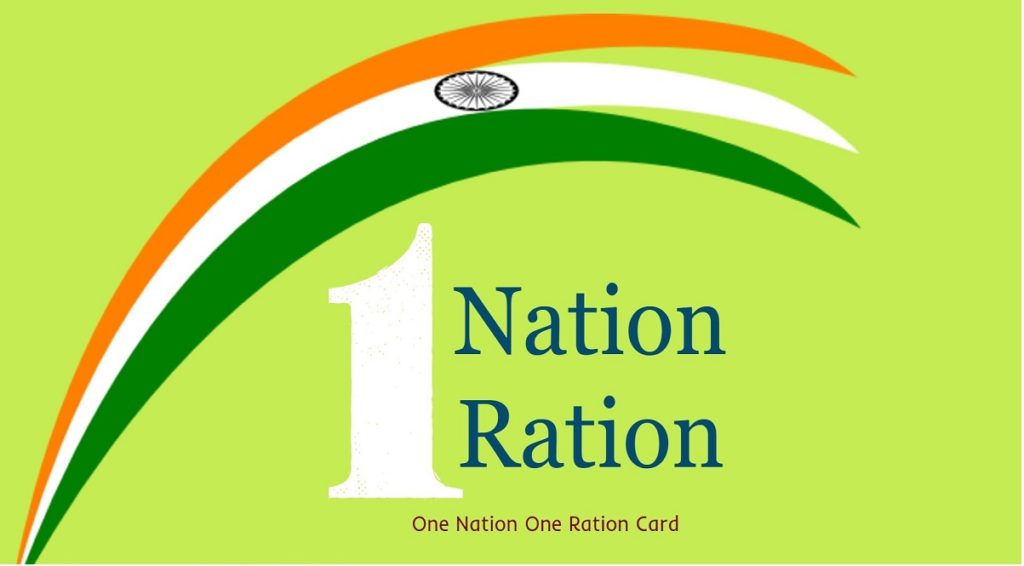This post is written by Aryan Pujari, a first year student of Amity Law School, Raipur, Chattisgarh
“Our economic approach to food and its distribution reflects our basic moral values”-Nelson Mandela
- Why in News?
The Center has designed a standard format for ration cards as it moves ahead with ‘one nation, one ration card’ initiative and has asked State governments to follow the pattern while issuing fresh Ration Cards.
- What’s Ration Card and who can avail it?
To proof oneself as an Indian citizen one need few documents ration card is one of these. The only difference between this and other documents is that it relies upon one’s social status. It is a voluntary people generally apply for it is a well-accepted identity proof and helps an individual avail various Government benefits through this scheme. Ration cards have multiple categories which are issued by the earning capacity of an individual. Different states have different schemes but is based on an individual’s annual income. A ration card stands as a reflection of an efficient Public Distribution System (PDS) that India have.
- Universal Public Distribution System (PDS)
Universal Public Distribution System (PDS) was introduced in India in 1965 to improve the health conditions and provide food grains to common people at affordable prices. It served the aim of
- Maintaining stability in the prices of essential commodities across regions
- Keeping a check on private trade, hoarding and black-marketing.[1]
- Emergence of the concept of “one nation one ration card”–
Practical implementation of this idea traces back to the year of 2019 when PILOT PROJECT was launched and resident of Telengana and Andhra Pradesh could borrow ration from either of the state using a single ration card but was not carried out for other states. In this ongoing crisis of Covid-19 labours stuck in different states went through fragile conditions such as starvation and hunger. This became a question on the face of public distribution system of India because even if the government was distributing ration throughout the nation this implied criteria of having ration card stood a trouble for migrant workers. Following are few rationales for emergence of ONORC-
- Currently the beneficiary can avail subsidized food grain under NATIONAL FOOD SECURITY ACT(NFSA) only with in their state from FAIR PRICE SHOPS (FPS).
- When one person immigrates to any other state (even in cases of marriages), applying for a new ration card is compulsory.
- Geographical location is a hindrance for Migrant workers as the entitled subsidized food is available to them only in their domestic states.
- According to the 2011 census, 4.1 crore people were interstate migrants. (deprived of subsidized food grain)
- As a result, in October 2011 Report of the Task Force on an IT Strategy for PDS and a direct transfer of subsidy for food and kerosene suggested this scheme.
- Bright side of ONOR-
Implementation Of this scheme would succor a large mass of laborers and will reduce their travail to avail entitled ration. Laborers who are engaged with a low wage for bread and butter will strive to get better opportunities for thick wages. Few of the reforms in terms of PDS are noted below-
- The finance minister said PDS rations cards will be made portable, adding this would benefit 67 crore beneficiaries or 83 per cent of PDS beneficiaries.[2]
- This system would introduce a new bio-metric recognition process so as to decrease repetition of distribution. (ePOS to be installed at FPS)[3]
- This would enable that person to purchase the number of food grains to which she is entitled under the NFSA.
- The aim of NFS act 2013 aims to provide subsidized food to one third of 1.2 billion total population, which could be achieved only by implementation of ONOR.
- Till now the government has aimed to cluster the states which was followed up in Pilot project.
The disgruntled attitude of workers towards the government will reduce as a result of decrease in monopoly and corruption done by the shops. This could ultimately lead to urbanization and will therefore boost employment opportunities, even without employment a person will not be bound to live under complete penury.
- Fallacies of ONOR-
Apart from the reform it would bring in PDS there are fewer drawbacks of the scheme few of them are as follows-
- Maximizing pleasure of individual often makes him lazy, this may reduce employment.
- Since the scheme is based on technology, the government may face some technical challenges during the implementation of the scheme.
- Uniformity in laws may cause the state to invest additional funds.
- Beneficiaries will continue to pay the same issue prices that are fixed under the NFSA hence it has no impact on prices.
- Suggestion-
Before going for this policy government must institute a committee to monitor the states with highest number of immigrants and every such states to be clustered with those from which maximum number of immigrants belongs to.
Also as a trial similar to the GST it should be implemented for a group of states keeping an eye on the procedure and outcome so as to avoid any probable future losses.
References:
[1]AVAILABLE AT <https://iasscore.in/current-affairs/prelims/one-nation-one-ration-card-scheme>
[2] AVAILABLE AT <https://indianexpress.com/article/what-is/what-is-the-one-nation-one-ration-card-scheme-migrants-coronavirus-lockdown-6409921/>
[3]AVAILABLE AT <https://www.civilsdaily.com/news/one-nation-one-ration-card-system/>


